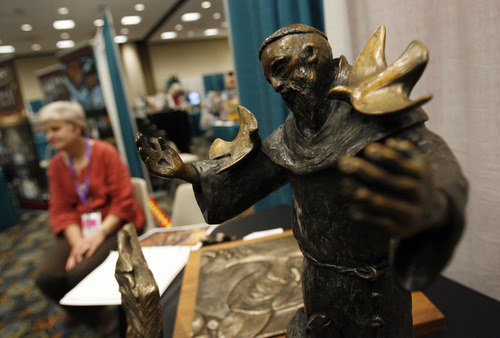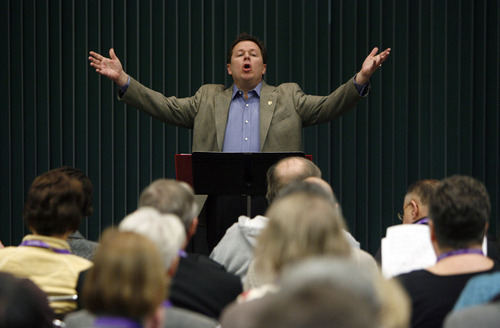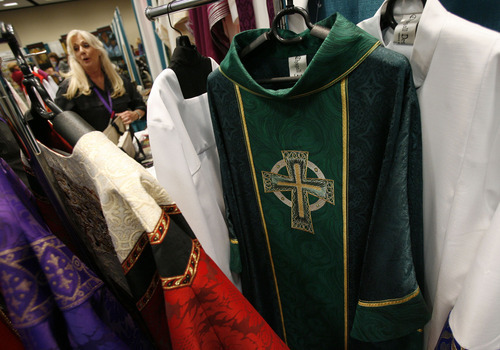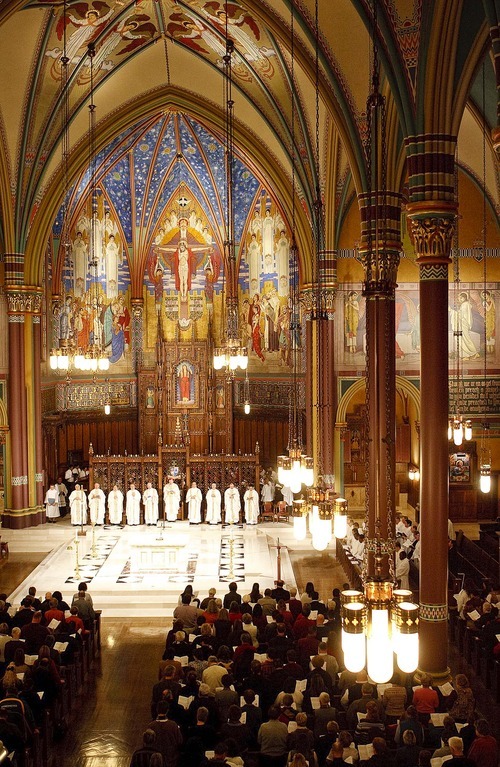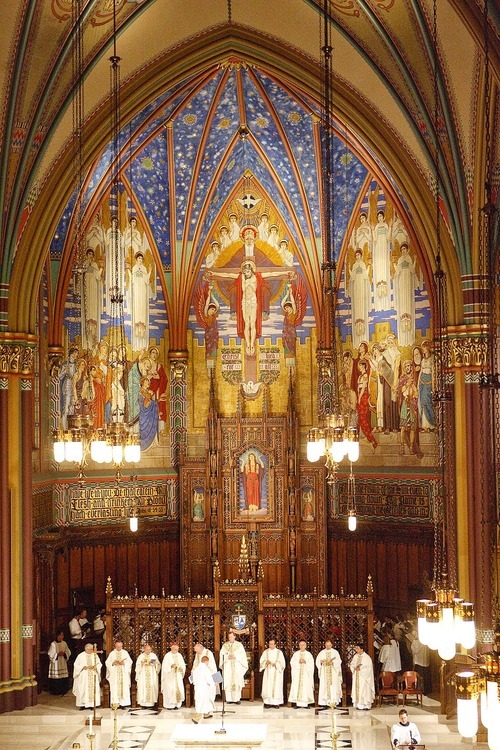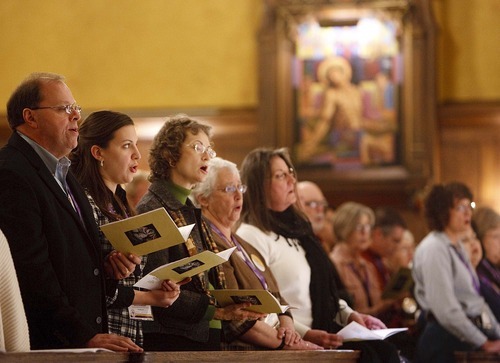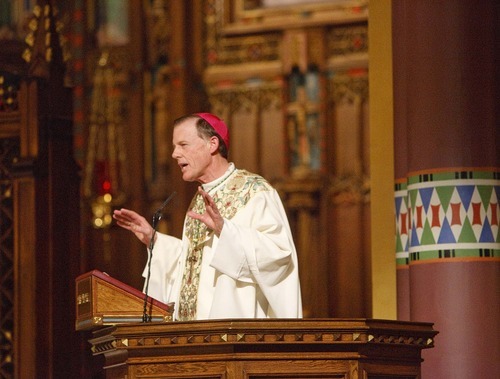This is an archived article that was published on sltrib.com in 2011, and information in the article may be outdated. It is provided only for personal research purposes and may not be reprinted.
The previous time Catholics made big changes to the words used at Mass, there was scant explanation for those in the pews, said the Rev. Patrick Elliott, pastor of Holy Family Catholic Parish in Ogden.
He was a church organist in the 1970s and remembers his Detroit pastor setting the tone with his blunt assessment: "I don't like this any better than you do, but it's what we have to do."
This time, as English-speaking Catholics around the world prepare to adopt the first major translation of the Roman Rite in 40 years, things are different.
"It's a chance, this time, to teach the people," said Elliott, one of more than 1,400 Catholics to attend a conference on the liturgy this week at the Calvin L. Rampton Salt Palace Convention Center.
The Southwest Liturgical Conference, comprising Catholics from 27 dioceses in the Southwest, staged its meeting in Salt Lake City for the first time in nearly two decades.
Roman Catholics worshipped in Latin for centuries and began hearing and speaking the prayers in their own languages only after the Second Vatican Council in the 1960s. A second edition of the Roman Missal in English came out in the 1980s, but with no major changes.
The third English edition of the Roman Missal will be used in all liturgies starting the first Sunday of Advent, Nov. 27.
While the postures — the standing, sitting, kneeling — will be unchanged, some words will be different. For instance, when the priest opens the Mass with "the Lord be with you," the people will respond, "And with your spirit," rather than with "and also with you."
The new translation, hammered out over several years, seeks to capture more accurately the original Latin as well as scripture.
Even so, the changes have been controversial.
Some say the process has been too top-down. Some say the current translation is more poetic and captures the essence — if not word-for-word translation — of the Latin.
Still others cast the changes in political terms, seeing them as throwbacks favored by traditionalists, not by progressives.
Indeed, one of the keynote speakers, the Rev. Paul Turner, pastor of St. Munchin Parish in Cameron, Mo., said the changes demand careful explanations from the clergy because some seem baffling.
A single word changed in the Eucharistic Prayers is the most controversial of all, he said. When the priest holds up a cup of wine at the consecration, he now quotes Jesus to say it is his blood, shed "for you and for all."
Under the new translation — which, Turner said, more accurately reflects the gospel accounts of the Last Supper — the priest will quote Jesus saying it is his blood "poured out for you and for many."
"People will think 'few' when they hear 'many' because they are accustomed to hearing 'all,' " Turner said. "It will be misunderstood, and its proper reception is going to require patient and hope-filled catechesis."
Salt Lake City's Bishop John C. Wester, who on Wednesday discussed the role of justice in the liturgy and its effects in Catholics' lives, said the missal changes are a "graced moment."
Nonetheless, Wester acknowledged, "the first few months will be difficult."
Moab resident Nanci Flesher, a music educator and liturgist, called the changes a "wonderful" opportunity for Catholics to learn why they say and sing what they do at Mass. She plans potluck training sessions for parishioners at St. Pius X Parish in Moab next fall.
"It's like a shot in the arm," Flesher said. "We're going to build more community and fellowship in the process."
The Rev. Edward T. de Leon, a parish priest from San Angelo, Texas, said Catholics "will pray the Mass with a different spirit."
He has high hopes. "It's going to renew the church."


